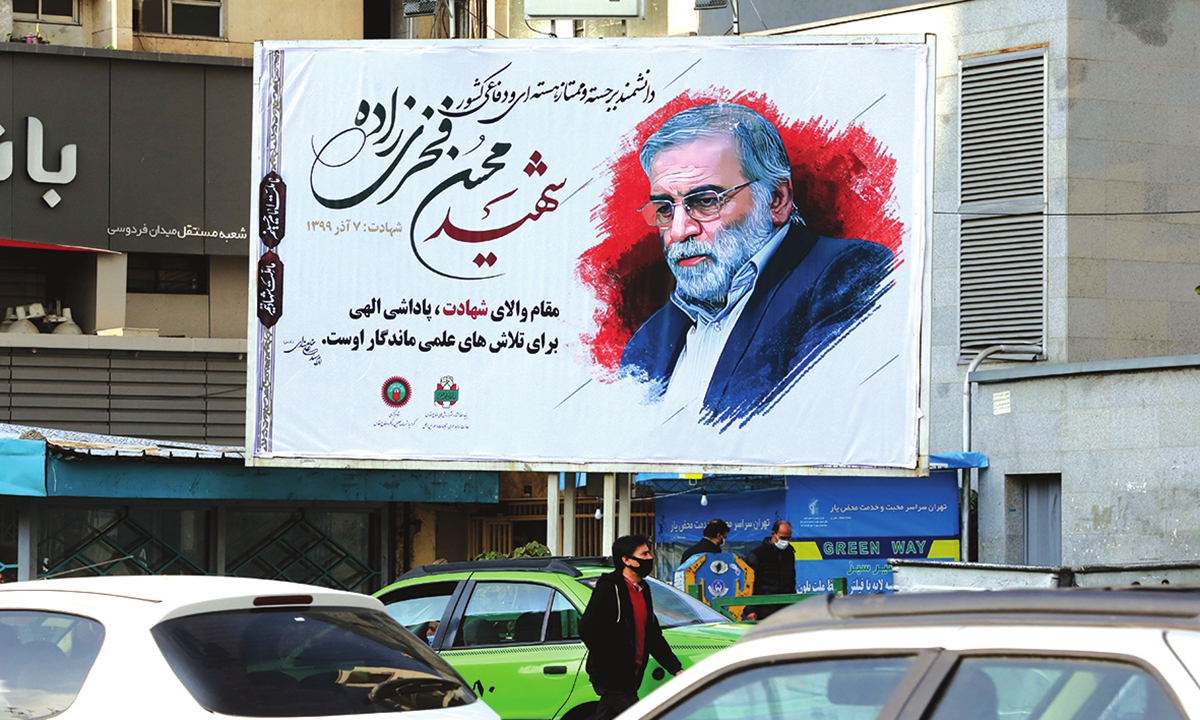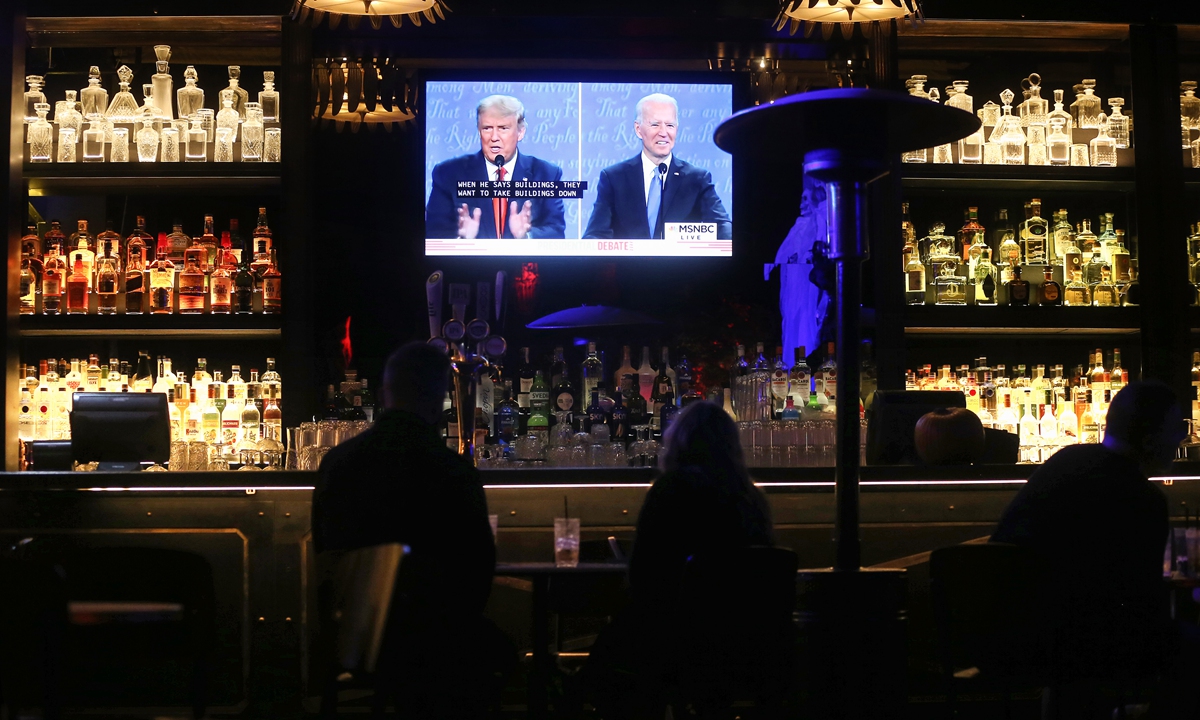Looking back at a difficult year
Editor's Note:
The novel coronavirus pandemic changed the way people lived and wreaked havoc on global economy.
For most people on the planet, 2020 might be the lowest and most difficult year since the start of the 21st century. A virus that had not been even named in 2019 has spread to one out of every 93 people in the world by the end of 2020, and at least 1.79 million people have died from it. The degree of global economic contraction and the intensity of fiscal expenditures in many countries were almost the same as those just after the end of a world war. Meanwhile, it was gratifying to hear some good news at the end of the year: China's Chang'e-5 lunar exploration successfully returned, the UK reached the post-Brexit trade agreement at the last minute, and the COVID-19 vaccine was launched at a miraculous speed. Finally, we are going to say goodbye to 2020.

Since January, the novel coronavirus pandemic has ravaged the world, causing a severe recession in the world economy. It has been described by some scholars as the first "nontraditional security world war." The World Health Organization called for global cooperation in the battle against the pandemic, and China actively promoted cooperation in the fight against it. The US has the worst outbreak. The Tokyo Olympics were postponed, and global vaccines were successively launched at the end of 2020, but coronavirus variants and mutations appeared in the UK and African countries.

The US-Iran confrontation intensified and tensions in the Gulf region escalated. On January 3, top Iranian commander Qasem Soleimani was killed in an airstrike by the US military in Baghdad, Iraq. On January 11, Iran admitted that a crashed Ukraine passenger plane was accidentally shot down by the Iranian military. Iranian top nuclear scientist, Mohsen Fakhrizadeh Mahabadi, was assassinated near capital Tehran on November 27. The world is worried that the US and Iran are getting closer to war.

In the US presidential election in November, the number of Americans voting in the election reached a record high. And this election is also called "the most obvious election with Chinese factors" by many observers. When China and the US signed the first phase of the economic and trade agreement at the beginning of 2020, Trump regarded it as his greatest political achievement since he took office. After the election was in jeopardy, he tried his best to shift the blame to China for his failure to contain the pandemic. From the trade and technology war to the media war, from expelling Chinese journalists and restricting student visas to closing the Chinese Consulate General in Houston, the US government's China policy has repeatedly broken the bottom line.
China-India border conflict, death and gunshots
Since April, the Indian border guards have disregarded the representations and protests made by the Chinese side, and have repeatedly crossed the line to make troubles, and unilaterally continued to build roads, bridges and other facilities in the Galwan Valley area. On the evening of June 15, in the Galwan Valley on the China-India border, the Indian army broke its promise and again crossed the line of actual control for illegal activities, deliberately launching provocative attacks, which caused intense physical clashes between the two sides and casualties.
Post-Brexit trade deal
On January 31, the UK officially left the European Union, becoming the first and only country to formally leave the EU. The follow-up negotiations progressed slowly, but on December 24, the two sides reached a consensus on a post-Brexit free trade agreement. "Today is a day of relief," Reuters cited European Union Brexit negotiator Michel Barnier as saying. The results of the Brexit referendum on June 23, 2016 plunged British society into a period of turbulence for more than four years.
Anti-racism movement in US
"The Black Lives Matter" movement sparked a fire of anger and swept across the US. On May 25, 46-year-old African-American George Floyd was violently killed by white police officers in Minneapolis, Minnesota. This incident provoked protests across the US and anti-racist rallies all over the world. The subsequent wave of protests against racial discrimination continued to escalate. At its worst, about 35 cities across the US introduced curfews, and 33 states and Washington DC dispatched about 41,500 National Guard members to maintain social order.
National security law for Hong Kong
On June 30, the Law of the People's Republic of China on Safeguarding National Security in the Hong Kong Special Administrative Region was officially passed, which plays an important role in maintaining the stability of Hong Kong. Statistics show that in the six months since the implementation of the Hong Kong National Security Law, 40 people have been arrested for violating relevant laws. Although the US and other Western anti-China forces are still using the situation in Hong Kong to interfere in China's internal affairs, the overall situation in Hong Kong is under control.
US interventaion complicates Taiwan Straits relations
The Donald Trump administration's attempt to support the island of Taiwan to participate in the World Health Assembly in 2020 was frustrated, and its scheme to create the so-called October surprise on the Taiwan questions predicted that the overall pattern of competition and conflict in China-US relations will not change after the Joe Biden administration comes to power in 2021, but the tension across the Taiwan Straits will be temporarily eased.
China's space exploration
China completed a series of space explorations including the successful launch of Chang'e-5 in 2020. In April, China initiated a Mars exploration mission. On May 5, the Long March-5B carrier rocket made its maiden flight. In June, Beidou completed its final launch and completed the global system network. China launched the country's first-ever Mars probe, codenamed Tianwen-1, on July 23, marking the first step in China's autonomous planetary exploration.
November 24 marks the world's first moon-sample mission in more than 40 years with Chang'e-5 being launched. China's national flag unfurled from the Chang'e-5 probe on the moon for the first time on December 4. Chang'e-5 probe retrieved and brought back about 1,731 grams of samples from the moon, according to the China National Space Administration on December 19.
Regional economic agreements
After eight years of negotiations, on November 15, the Regional Comprehensive Economic Partnership Agreement (RCEP) was officially signed. This marks the start of the free trade zone with the largest participating population, the most diverse member structure, and the greatest development potential in the world.
World public opinion also believes that the official signing of the RCEP and the China-EU bilateral investment treaty is a victory for multilateralism and free trade and is of great significance for stabilizing the global economy.
The novel coronavirus pandemic changed the way people lived and wreaked havoc on global economy.
For most people on the planet, 2020 might be the lowest and most difficult year since the start of the 21st century. A virus that had not been even named in 2019 has spread to one out of every 93 people in the world by the end of 2020, and at least 1.79 million people have died from it. The degree of global economic contraction and the intensity of fiscal expenditures in many countries were almost the same as those just after the end of a world war. Meanwhile, it was gratifying to hear some good news at the end of the year: China's Chang'e-5 lunar exploration successfully returned, the UK reached the post-Brexit trade agreement at the last minute, and the COVID-19 vaccine was launched at a miraculous speed. Finally, we are going to say goodbye to 2020.

A medical personnel takes swab samples from a woman during medical tests for domestic airline passengers at the Covid-19 coronavirus rapid diagnostic testing centre in central Yangon, Myanmar ahead of their scheduled travel on December 21. Photos: AFP
Coronavirus outbreakSince January, the novel coronavirus pandemic has ravaged the world, causing a severe recession in the world economy. It has been described by some scholars as the first "nontraditional security world war." The World Health Organization called for global cooperation in the battle against the pandemic, and China actively promoted cooperation in the fight against it. The US has the worst outbreak. The Tokyo Olympics were postponed, and global vaccines were successively launched at the end of 2020, but coronavirus variants and mutations appeared in the UK and African countries.

Vehicles drive by a billboard in honor of slain nuclear scientist Mohsen Fakhrizadeh in the Iranian capital Tehran, Iran on November 30.
US and Iran fall foul of each otherThe US-Iran confrontation intensified and tensions in the Gulf region escalated. On January 3, top Iranian commander Qasem Soleimani was killed in an airstrike by the US military in Baghdad, Iraq. On January 11, Iran admitted that a crashed Ukraine passenger plane was accidentally shot down by the Iranian military. Iranian top nuclear scientist, Mohsen Fakhrizadeh Mahabadi, was assassinated near capital Tehran on November 27. The world is worried that the US and Iran are getting closer to war.

People watch a broadcast of the final debate between President Donald Trump and Democratic presidential nominee Joe Biden at The Abbey, with socially distanced outdoor seating, on October 22, 2020 in West Hollywood, the US.
US policy toward China breaks through the bottom lineIn the US presidential election in November, the number of Americans voting in the election reached a record high. And this election is also called "the most obvious election with Chinese factors" by many observers. When China and the US signed the first phase of the economic and trade agreement at the beginning of 2020, Trump regarded it as his greatest political achievement since he took office. After the election was in jeopardy, he tried his best to shift the blame to China for his failure to contain the pandemic. From the trade and technology war to the media war, from expelling Chinese journalists and restricting student visas to closing the Chinese Consulate General in Houston, the US government's China policy has repeatedly broken the bottom line.
China-India border conflict, death and gunshots
Since April, the Indian border guards have disregarded the representations and protests made by the Chinese side, and have repeatedly crossed the line to make troubles, and unilaterally continued to build roads, bridges and other facilities in the Galwan Valley area. On the evening of June 15, in the Galwan Valley on the China-India border, the Indian army broke its promise and again crossed the line of actual control for illegal activities, deliberately launching provocative attacks, which caused intense physical clashes between the two sides and casualties.
Post-Brexit trade deal
On January 31, the UK officially left the European Union, becoming the first and only country to formally leave the EU. The follow-up negotiations progressed slowly, but on December 24, the two sides reached a consensus on a post-Brexit free trade agreement. "Today is a day of relief," Reuters cited European Union Brexit negotiator Michel Barnier as saying. The results of the Brexit referendum on June 23, 2016 plunged British society into a period of turbulence for more than four years.
Anti-racism movement in US
"The Black Lives Matter" movement sparked a fire of anger and swept across the US. On May 25, 46-year-old African-American George Floyd was violently killed by white police officers in Minneapolis, Minnesota. This incident provoked protests across the US and anti-racist rallies all over the world. The subsequent wave of protests against racial discrimination continued to escalate. At its worst, about 35 cities across the US introduced curfews, and 33 states and Washington DC dispatched about 41,500 National Guard members to maintain social order.
National security law for Hong Kong
On June 30, the Law of the People's Republic of China on Safeguarding National Security in the Hong Kong Special Administrative Region was officially passed, which plays an important role in maintaining the stability of Hong Kong. Statistics show that in the six months since the implementation of the Hong Kong National Security Law, 40 people have been arrested for violating relevant laws. Although the US and other Western anti-China forces are still using the situation in Hong Kong to interfere in China's internal affairs, the overall situation in Hong Kong is under control.
US interventaion complicates Taiwan Straits relations
The Donald Trump administration's attempt to support the island of Taiwan to participate in the World Health Assembly in 2020 was frustrated, and its scheme to create the so-called October surprise on the Taiwan questions predicted that the overall pattern of competition and conflict in China-US relations will not change after the Joe Biden administration comes to power in 2021, but the tension across the Taiwan Straits will be temporarily eased.
China's space exploration
China completed a series of space explorations including the successful launch of Chang'e-5 in 2020. In April, China initiated a Mars exploration mission. On May 5, the Long March-5B carrier rocket made its maiden flight. In June, Beidou completed its final launch and completed the global system network. China launched the country's first-ever Mars probe, codenamed Tianwen-1, on July 23, marking the first step in China's autonomous planetary exploration.
November 24 marks the world's first moon-sample mission in more than 40 years with Chang'e-5 being launched. China's national flag unfurled from the Chang'e-5 probe on the moon for the first time on December 4. Chang'e-5 probe retrieved and brought back about 1,731 grams of samples from the moon, according to the China National Space Administration on December 19.
Regional economic agreements
After eight years of negotiations, on November 15, the Regional Comprehensive Economic Partnership Agreement (RCEP) was officially signed. This marks the start of the free trade zone with the largest participating population, the most diverse member structure, and the greatest development potential in the world.
World public opinion also believes that the official signing of the RCEP and the China-EU bilateral investment treaty is a victory for multilateralism and free trade and is of great significance for stabilizing the global economy.
